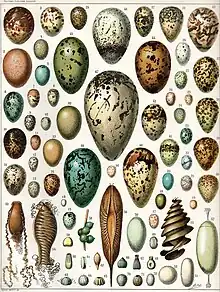ডিমা
Assamese

ডিমা
- dima
- eggs
Alternative forms
- ডিম (dim) — Standard
Pronunciation
- IPA(key): /di.ma/
Declension
| Kamrupi dialects declension of ডিমা | |
|---|---|
| nominative | ডিমা / ডিমাই dima / dimai |
| genitive | ডিমাৰ dimar |
| nominative | ডিমা / ডিমাই dima / dimai |
| accusative | ডিমা / ডিমাক dima / dimak |
| dative | ডিমাক dimak |
| instrumental | ডিমাই / ডিমাদি dimai / dimadi |
| genitive | ডিমাৰ dimar |
| locative | ডিমাত dimat |
| Notes | |
| Noun: Assamese nouns are indefinite. They can be both singular and plural depending on the context. They are made definite by using classifiers and plural suffixes which also make them either singular and plural. Plural: The general plural suffixes are: -মাখা (-makha) and -গিলা (-gila) / গিলাক (gilak) / গিলান (gilan). Nominative: The -এ (-e) suffix is used when the noun works as an agent and the verb is transitive. Accusative: -ওক (-ük) is used for animate sense and for emphasis. No case marking otherwise. Dative: Sometimes alternatively -ওত (-üt) marks this case. Instrumental 1: -এ (-e) is unemphatic and -এদি (-edi) is emphatic and more common. Instrumental 2: Alternatively -এৰে (-ere) is used instead of the common -এদি (-edi). Locative: The locative suffix is -এ (-e) in repetition of the word, with adverbs and days of the week. | |
This article is issued from Wiktionary. The text is licensed under Creative Commons - Attribution - Sharealike. Additional terms may apply for the media files.